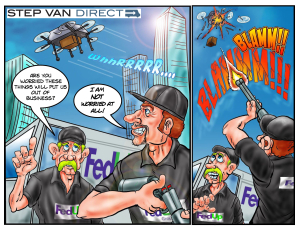Hey FedEx Contractors,
Believe it or not, independent insurance specialists are there to save you money. The number one bit of advise they have to save you money is to have a better safety record. An experience modification rate determines how much you pay for compensation premiums. Having fewer accidents and claims lowers your experience modification rate and lowers the amount you’re shelling out for insurance!
Here are some safety tips on how to save you money:
1. Consistent communication: Simple injuries left untreated can turn into enormous claims that hurt your insurance credibility. Communication about these little injuries to your independent insurance agent can save you money!
2. Rear view cameras are helpful, but you could do more. Back up sensors on trucks are a cheap way to prevent one of the most common causes of accidents and loss of bonuses.
3. Have frequent group safety meetings. Get your employees engaged in the conversation. Face-to-face, daily safety tips to your drivers can improve your relationship with employees and prevent many accidents.
Work Truck Direct is a fleet management solutions company, we do not provide insurance. But did you know that you can get insurance from outside carriers that meet the requirements set by FedEx Ground? Did you know that insurance requirements for an independent contractor differ from that of an independent service provider? Your business is unique, so you should have an agent who has experience in writing insurance for FedEx contractors, preventing accidents and handling compensation claims. Insurance is a service, and using an independent insurance specialist is your best bet to get the best service. Please consult an insurance specialist such as Brian O’Connor of Paradiso Insurance to see how you could save.



